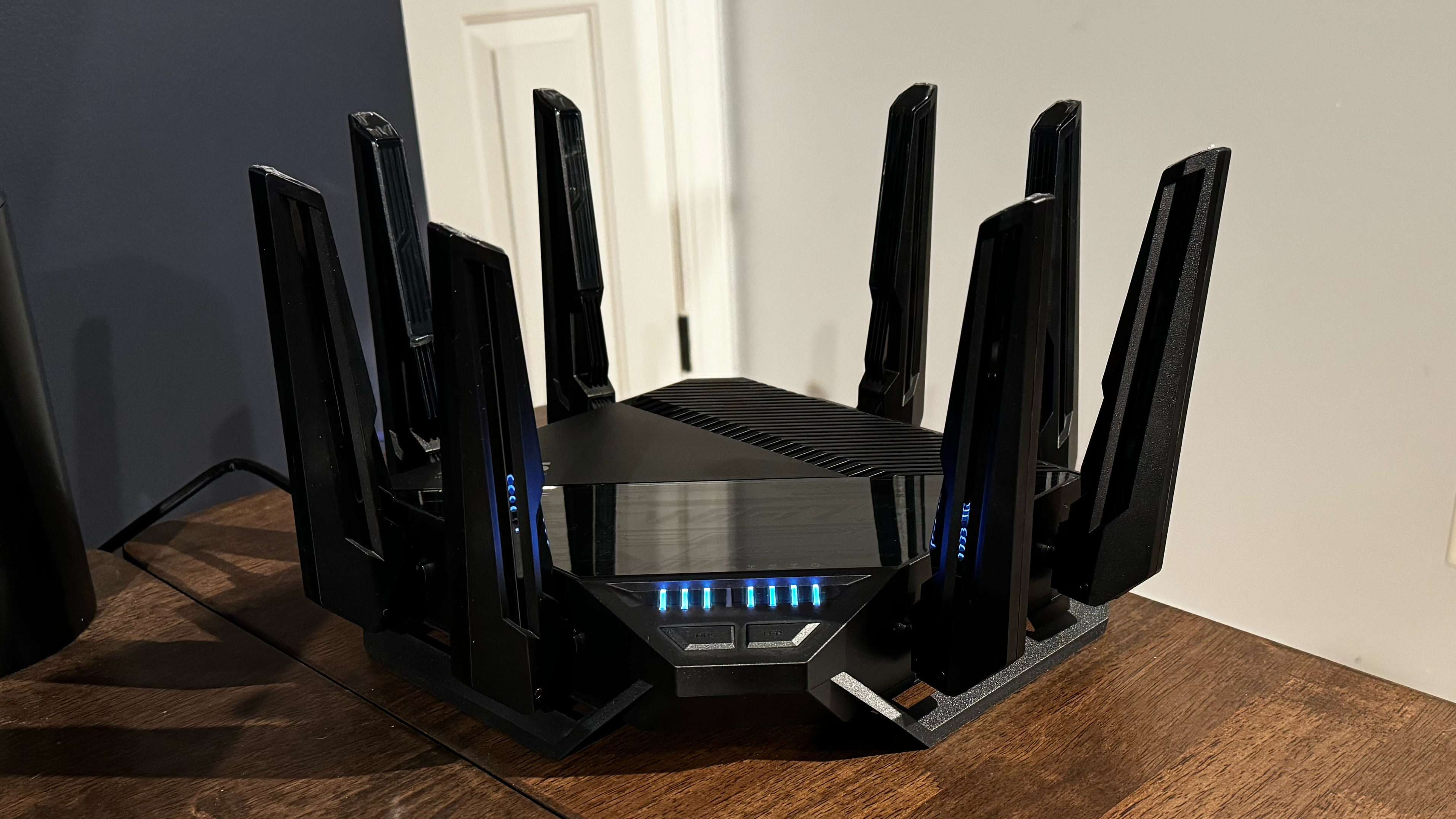Wi-Fi 8 won't improve transfer speeds — but the new standard will enhance reliability and user experience
User experience is the key.

Instead of increasing the physical data transfer rate beyond the 23 Gbps offered by Wi-Fi 7, the next-generation Wi-Fi 8—based on IEEE's 802.11bn Ultra High Reliability (UHR) specification—will focus on improving connection reliability and user experience.
Traditionally, new Wi-Fi iterations (as specified by IEEE 802.11 standards) have focused on maximizing data transfer rates by increasing channel bandwidth and number of channels and introducing new modulation methods. With Wi-Fi 7, the maximum PHY rate is 23 Gbps, though nobody expects to hit speeds that high. Also, the reliability of high-speed Wi-Fi connections leaves much to be desired. To that end, the next-generation Wi-Fi 8 iteration will not increase theoretical speed but will introduce new features designed to improve real-world performance and boost connection reliability, reports PC World, citing a MediaTek whitepaper.
On a high level, Wi-Fi 8 (802.11bn) resembles Wi-Fi 7 (802.11be): it uses 2, 4, 5, and 6GHz bands, the same modulation (4096 QAM), eight spatial streams, MU-MIMO, multiple OFDMA, and a maximum channel bandwidth of 320MHz.
However, according to the MediaTek paper, the new spec introduces several key features designed to improve real-world performance and connection speeds: Coordinated Spatial Reuse (Co-SR), Coordinated Beamforming (Co-BF), Dynamic Sub-Channel Operation (DSO), and enhanced Modulation Coding Scheme (MCS). Remember that we are talking about the standard as MediaTek sees it. Some features could be mandatory, while others could end up being optional.
The Coordinated Spatial Reuse (Co-SR) feature addresses varying signal strength between nearby devices and distant access points in high-density office scenarios. The capability enables APs to adjust and coordinate their power levels dynamically depending on the distance between devices and other APs to maintain the right signal strength. According to MediaTek's preliminary testing, this can improve overall system efficiency by 15%—25%.
Similarly, Wi-Fi 8's Coordinated Beamforming (Co-BF) advances previous beamforming technology by coordinating signal direction among multiple access points. This technology allows the system to avoid sending signals to areas and devices that are not needed, reducing interference and concentrating the signal toward active devices. In MediaTek's tests, Co-BF has improved throughput by 20%—50% in setups involving mesh networks shared in public spaces and some homes.
Dynamic Sub-Channel Operation (DSO) capability enables the network to assign sub-channels based on device requirements and abilities, increasing efficiency and boosting throughput by up to 80% (for advanced devices) while potentially avoiding bottlenecks.
Get Tom's Hardware's best news and in-depth reviews, straight to your inbox.
Wi-Fi 8 will also incorporate refined data rates with additional levels in the Modulation Coding Scheme (MCS) lookup table, allowing devices to make smoother transitions in connection quality as they move through different areas. By adding finer gradations, such as a 16-QAM coding rate, Wi-Fi 8's MCS promises to reduce sudden drops in datarates, enhancing overall transmission stability and improving bandwidth by 5% to 30%, depending on the exact scenario.
The final Wi-Fi 8 standard is projected to be completed in 2028, and initial products based on the draft specification are anticipated in early 2028, pending regulatory approvals.

Anton Shilov is a contributing writer at Tom’s Hardware. Over the past couple of decades, he has covered everything from CPUs and GPUs to supercomputers and from modern process technologies and latest fab tools to high-tech industry trends.
-
JamesJones44 I'm actually happy they are doing this. In my personal experience, at normal operating ranges, I haven't seem much of an improvement since 802.11 ac (maybe even really since N on the 5Ghz channels). 6Ghz ax is great for an open room at fairly close range, but that is pretty niche and at normal distances with 5Ghz it's no better in my personal testing than ac. I haven't tried WiFi 7 yet, but reviews seem to point to more of the same as ax.Reply
Where things have been the same forever is dropped connections and issues with soft handoffs. Which it sounds like bn might address. -
emike09 This is exactly the direction they need to go right now. Managing Wi-Fi in a 60K sq. ft warehouse is a pain. Anything to increase reliability for our workers would be wonderful. And even with over 100 employees, that warehouse averages about 90Mbps over the VPN to our HQ. No need for a gazillion gigibits :PReply -
KraakBal Bluetooth also still not working for me since 2001. I'll believe it when I experience itReply -
DougMcC Reply
BT was in pretty poor shape 20 years ago. And even 10 years ago, fairly unreliable. But have you tried with 5.x devices and hosts? About 5ish years ago it got much, much better with the advent of 5.x.KraakBal said:Bluetooth also still not working for me since 2001. I'll believe it when I experience it -
usertests Nobody talks about the little features that each major Wi-Fi standard brings, since it's harder to market them. Latency is supposed to be decreased too.Reply -
YSCCC Hopefully it will make through the corner performance improve a lot as to not limiting the attena or main router placement yet sustaining 1G+ bandwidthReply -
SirStephenH ReplyWi-Fi 8 will not improve transfer speeds — the new standard will, however, enhance reliability and user experience
Then goes on to explain all the ways that improved reliability improves transfer speeds... -
blazorthon Reply
It helps the transfer speeds you see in the real world to be closer to the maximum advertised transfer speed, but it doesn't change the maximum advertised transfer speed.SirStephenH said:Then goes on to explain all the ways that improved reliability improves transfer speeds...